
Photo: Zeynep Deniz Altınsoy, Turkish expert, Doctor of Political Science
Amid rapid changes in the Middle East, Türkiye is once again asserting itself as a key power shaping the region’s strategic balance. From the Syrian dossier to the Palestinian issue, and from relations with Israel to policy toward Iran, Ankara operates within a highly complex web of interests and challenges, showcasing its own diplomatic and military architecture of influence.
The Caspian Post spoke with Turkish political scientist Dr. Zeynep Deniz Altınsoy about the key principles of Türkiye’s strategy, its legal and humanitarian foundations, the prospects for the return of Syrian refugees, and how Türkiye manages to maintain a balance between the West and the East.
- How justified do you find the thesis about the inadmissibility of “dividing” Syria? If diplomacy fails, what means will Ankara use?
- Türkiye’s protection of Syria’s territorial integrity is a strategic principle, important both for regional stability and national security. The legitimacy of this approach rests on three key arguments:
Firstly, the emergence in northern Syria of structures linked to the PKK/YPG, possessing autonomous or independent status, is seen by Türkiye as a direct security threat. As of 2025, clashes between YPG-SDF forces and the Syrian army in the Aleppo region, along with the refusal of these forces to withdraw east of the Euphrates, illustrate that Ankara perceives this threat in very concrete terms.
Secondly, Türkiye emphasizes the necessity of respecting the territorial integrity of states in accordance with Article 2(4) of the UN Charter. This principle provides the legal basis for rejecting any division of Syria. Türkiye’s stance aligns with the broader international position, as the disintegration of Syria would only exacerbate regional conflicts.
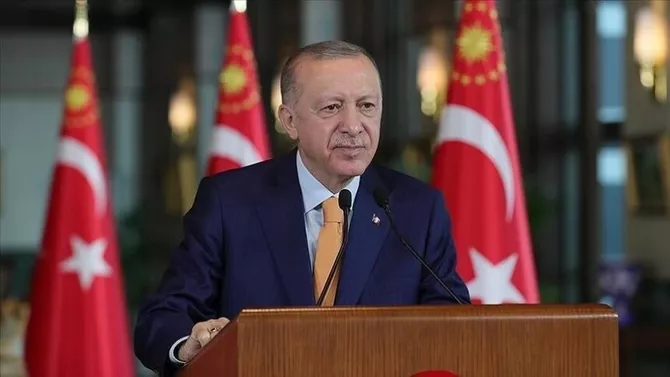
photo: Anadolu Agency
Thirdly, the fragmentation of Syria could trigger new migration waves. Türkiye already hosts more than 3.6 million Syrian refugees. Any further disintegration of the country would increase both the humanitarian and economic burden.
If diplomatic channels are exhausted, Türkiye has a range of military, political, and economic tools at its disposal:
· Since 2016, Türkiye has conducted operations such as “Euphrates Shield,” “Olive Branch,” “Peace Spring,” and a series of “Claw” operations, establishing a de facto security belt in northern Syria. If diplomacy fails, the expansion of these operations or the initiation of new ones may become possible. Statements made in 2025 regarding a “final solution” in the fight against terrorism signal such readiness.
· Türkiye cooperates with the Syrian Interim Government and local councils, creating alternative governance models on the ground. This strengthens political influence and simultaneously weakens YPG positions.
· On international platforms, including the UN, the OIC, and within the Astana process, Ankara can exert diplomatic pressure against the division of Syria. U.S. and certain European support for the YPG should be interpreted in the context of international law.
· Türkiye is also increasing investments in infrastructure, education, and healthcare in Syria’s border regions. These efforts give Ankara’s position a tangible basis and enhance its legitimacy. If diplomacy fails, which remains unlikely at present, these investments could serve as a strategic tool to prevent the emergence of alternative non-state structures. As a major regional actor, Türkiye possesses the resources to implement this approach.
- To what extent do you see competition or the potential for conflict between Türkiye and Israel in the Syrian theater?
- Although there are no direct hostilities between Türkiye and Israel in Syria, tensions between the two countries are rising. Israel views Syria as a staging ground for Iranian proxies and regularly carries out airstrikes on their facilities. Türkiye, controlling the north of the country, is targeting PKK/YPG formations, which it considers a security threat. Israel, however, interprets these actions as “neo-Ottoman expansion,” while Ankara stresses respect for the territorial integrity of its neighbors. This dynamic is creating a space of indirect rivalry.
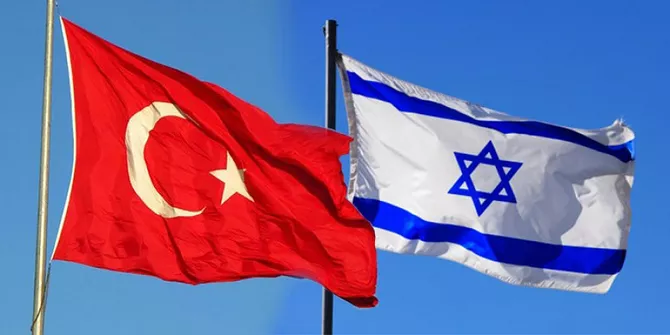
photo: jewishstudies
The risk of unintended clashes is increasing due to the overlap between Israeli air operations and the zones of activity of Turkish forces, while the lack of intelligence coordination further heightens the danger. The balance of power is shaped by the positions of the United States and Russia. Washington’s support for Israel limits Ankara’s maneuverability, but President Erdoğan’s diplomatic activism-which earned him recognition from Trump-partially offsets this constraint. At the same time, Türkiye’s engagement with Moscow helps restrain Israel’s air superiority.
In the Syrian context, the confrontation between Türkiye and Israel is a struggle for influence and control over bases, routes, and local forces, reflecting a broader clash of their strategic visions-from Syria to Gaza and the Eastern Mediterranean.
- How do you assess Türkiye’s strategy on the Palestinian question during a period when international initiatives have intensified amid Israeli actions?
- Türkiye’s approach to the Palestinian issue is a well-structured policy grounded in international law and historical responsibility. President Recep Tayyip Erdoğan’s statement in China in September 2025, describing Israel’s actions in Gaza as “a new phase of genocidal actions,” highlighted both the legal and moral dimensions of the Turkish position.
Ankara sees the Palestinian issue not only as an act of solidarity but also as a matter of human rights and regional stability. Following the escalation of the conflict in autumn 2025, Türkiye went beyond mere statements, proposing concrete measures such as humanitarian corridors, de-confliction zones, and safe exits for civilians. Joint efforts with Qatar and Egypt further strengthened its mediation potential.
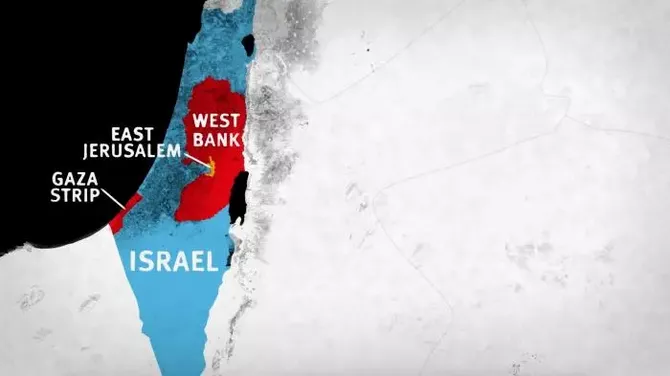
photo: hrw
Support for Palestine was also expressed domestically: the “Chain of Support for Gaza” events were held in all 81 provinces, demonstrating the scale of public solidarity and reinforcing the legitimacy of Türkiye’s foreign policy. This internal consolidation strengthened its soft power across the Arab world, Africa, and Asia, solidifying Türkiye’s status as a moral and ethical leader.
- How is Türkiye’s position on the return of Syrian refugees being shaped? What role is Ankara ready to play in this process, and what risks does it entail?
- Since 2016, Türkiye has followed the principles of the “voluntary, safe, dignified, and orderly return” of Syrian refugees. After the fall of Bashar al-Assad’s regime in 2024, this policy took on a more systematic and accelerated character. According to the Directorate General of Migration Management, by 2025, 1,150,000 people had voluntarily returned to Syria.
Repatriation is facilitated by the safe zones established by Türkiye, infrastructure projects, and support from local authorities. Ankara manages the process by balancing humanitarian responsibility with domestic public expectations.
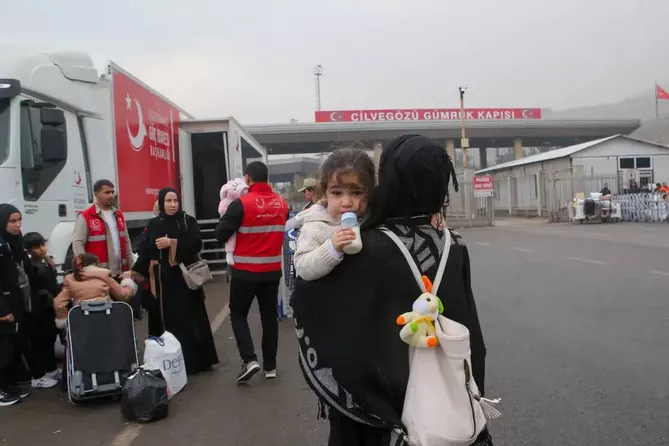
photo: AA
Under the “Go and See” program, Syrians under temporary protection are allowed short-term visits to Syria to assess conditions before returning. Border procedures have been simplified, and documentary and financial assistance is provided with the participation of NGOs.
Despite the establishment of a transitional government, the activity of the YPG-PKK in northern Syria remains a threat, and neutralizing it is crucial for final stabilization and the security of returnees.
- How do you assess Türkiye’s decision to freeze the assets of individuals and organizations linked to Iran’s nuclear and missile programs?
- Türkiye’s decision was taken under Law No. 7262, “On the Prevention of the Financing of the Proliferation of Weapons of Mass Destruction,” and UN Security Council resolutions, demonstrating Ankara’s commitment to international obligations and the global anti-nuclear regime. This measure was a response to Israel’s “Rising Lion” operation and the growing tensions surrounding Iran, reflecting Türkiye’s policy of “balanced diplomacy.”
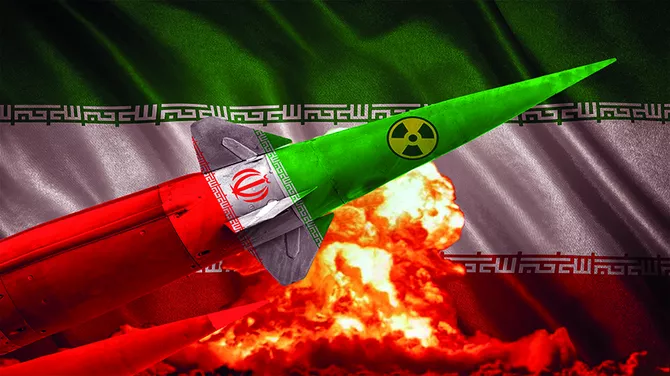
photo: futureuae
Ankara aims to contain the development of Iran’s nuclear and missile programs, which are seen as potential threats to regional stability and Türkiye’s own security, while simultaneously maintaining economic ties with Tehran. The decree signed by President Erdoğan introduces restrictions on organizations linked to Iran’s military and scientific complex but does not affect trade or energy. In this way, Türkiye implements a strategy of “sectoral separation,” combining normative loyalty to the West with the protection of national interests.
- How can Türkiye build a balance between Western expectations and its regional interests under new sanctions pressure?
- As a NATO member and a founding member of the Council of Europe, Türkiye formally belongs to the Western alliance and cannot ignore its expectations on issues such as nuclear non-proliferation, human rights, and combating the financing of terrorism. The October 2025 decision to freeze assets linked to Iran’s nuclear program is one example. However, Ankara follows the principle of “flexible sovereignty”: it applies sanctions selectively, preserving freedom of maneuver in energy, trade, and security. This approach reflects a model of “relational autonomy” - interdependent independence rather than full alignment with the West.
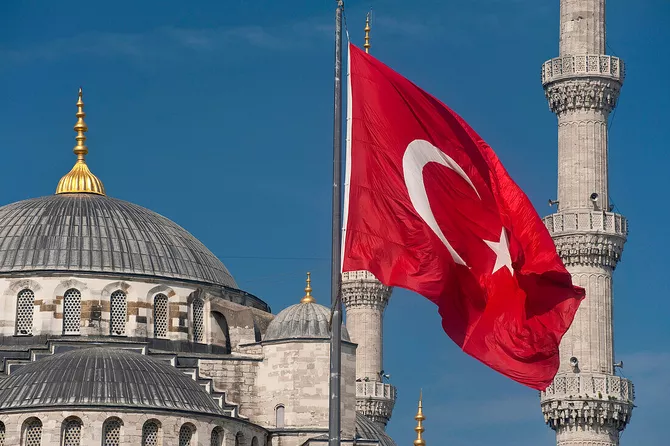
photo: lookphotos
To maintain balance, Türkiye relies on three key instruments. First, sectoral separation: restrictions apply only to nuclear, missile, and terrorist spheres, while cooperation with Iran, Russia, and Gulf states continues in energy and transport. Second, multilateral engagement - participating in the SCO, the OTS, and the Astana process as alternatives to Western platforms. Third, humanitarian diplomacy - leveraging aid and mediation in humanitarian projects to mitigate the impact of sanctions and enhance soft power.
- How do you see the evolution of the regional balance of power in the medium term? How might equilibrium develop among the emerging centers of influence in Türkiye, Iran, Israel, and Syria?
- By 2025, the regional balance of power is shaped not only by military strength but also by asymmetric factors such as intelligence, cyber capabilities, energy, and networks of local armed groups. According to Global Firepower 2025, Türkiye retains the strongest military in the Middle East and, by consolidating zones of influence in northern Syria, reinforces both its military and political presence. Iran, weakened by Israeli strikes on facilities in Natanz and Damascus, continues to exert influence through proxy forces in Iraq, Lebanon, and Syria. Israel, following a doctrine of pre-emptive strikes, maintains deterrence capabilities, though the summer events exposed vulnerabilities in its internal security.
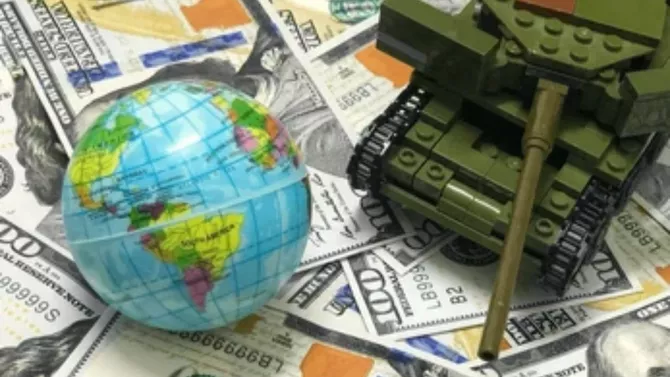
photo: CNN
Against this backdrop, Türkiye is emerging as a key “balancing power” in the region. First, it mediates between Iranian and Israeli structures in Syria, employing a combination of military, humanitarian, and diplomatic tools. Second, it is becoming a hub for energy and transport routes, linking Azerbaijan and Iraq with Europe while limiting Iran’s influence. Third, through the development of humanitarian diplomacy - including assistance to refugees, support for Palestine, and solidarity initiatives - Türkiye projects the image of a values-based leader, using soft power to counterbalance Israel’s hard-line approach.
Share on social media